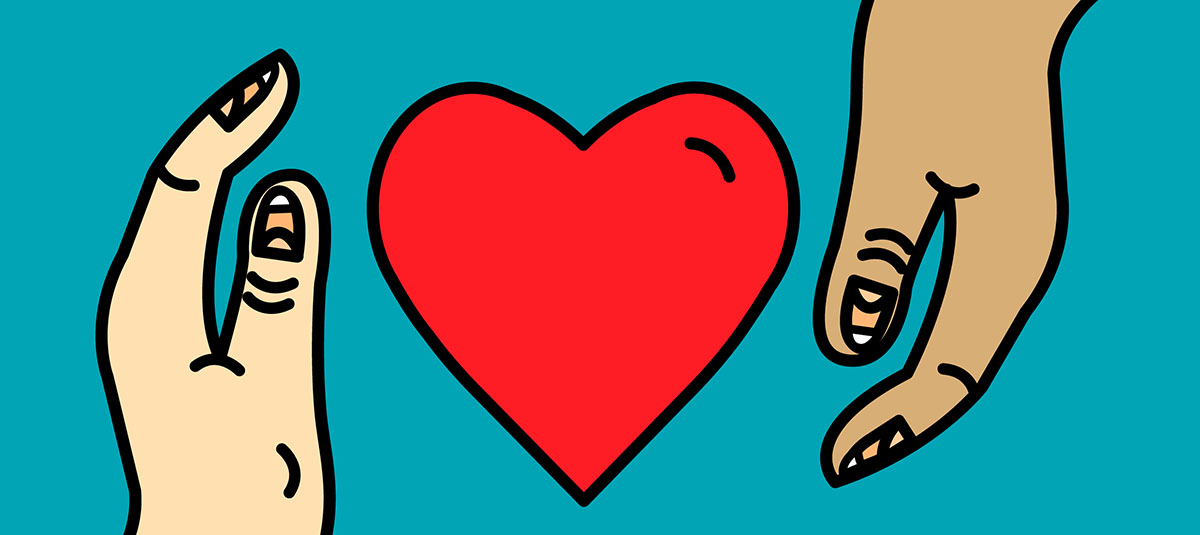Your partner may be struggling with their mental health and you might not know how to help. It’s ok, they’re not at fault and neither are you. A relationship alone can be a challenge, but when one or both partners are struggling with their mental health it can become a bigger challenge. I’m not here to say that it’s easy, because it’s not. It can be hard for both partners; the individual going through mental distress, but also for the partner that is unsure how to help. If your partner is having a hard time it can bring up confusion, anger, and pain. It may be hard – but a relationship is still possible.
Depression can turn your partner into what seems like someone else, but they’re still there. Your partner might distance themselves from you unintentionally. I know that I have done this in my relationship, but never did I mean to make my partner feel that I was running away from them. It can be confusing but your partner isolating themselves might not be what you think it is.
You might have never been introduced to depression until your relationship, whether it be when you first started the relationship or when you were already married. It’s never too late to educate yourself and learn more about depression and mental health. Being in a relationship with someone who struggles with their mental health will introduce you to what it’s really like outside of a textbook. Even if your partner is not diagnosed with a mental illness, they can still experience distress for other reasons – or maybe for no reason at all. It is still important you are there to support them through those times.

I’ve experienced this in my 6-year relationship, but we communicate and learn from each other every day. We have seen each other grow as individuals despite depression, anxiety, and other emotional distress. There won’t always be the “right” thing to say or do when your partner is struggling. You also won’t be able to fix your partner’s depression or anxiety — but there are ways to help. Wanting to support your partner is the only way you can start helping them. Here are some simple ways you can help…
- Be there. You might be thinking, ‘I am always with them.’ Be there emotionally and be empathetic. Being there to actively listen without judging them. Being listened to can make your partner feel cared for, sometimes it’s all they need. Take in what they are saying. Be there physically with a hug, especially when they need it. If you’re not with them physically, try to be there by calling them or Facetiming them.
- Communicate. Talk to your partner about everything, whether it’s good or bad. Build trust with them and be honest. If you argue, don’t yell at one another. Don’t be afraid to ask questions about how they are feeling or if they are having suicidal thoughts. It might seem uncomfortable but open up the conversation and they may open up to you if they are feeling that way. By communicating effectively, you can establish a plan on how to help. Everyone’s mental health is different, talk to your partner about it.
- Do things. Depression can cause someone to be less interested in doing anything. Do things with your partner. Small things can make a big impact like cooking together, going on a walk, or going on a picnic. Do things for your partner, especially when they can’t do it. Getting out of bed might be a big step for your partner, help them. Take them breakfast in bed, brush their hair, and as silly as it sounds, help them take a bath if they can’t. Continue to encourage them but don’t push them.
- Take care of yourself. I am sure you’re having a hard time as well. You might be struggling with your own mental health along with your partners. It’s ok to take a deep breath. Tell your partner how you’ve been feeling as well. Find a way to unplug and recharge if you have to. Supporting and helping your partner doesn’t mean you have to give up on yourself either, you can grow together.
- Lastly, LAUGH. Laugh together. Throughout everything that you are going through as a couple, continue to have fun. Find happy moments in your everyday life and laugh as much as possible. Watch a funny YouTube video, a movie, and don’t forget to tag each other on memes. The person you fell in love with is still there, they can still laugh, and they can still smile.
Mental illnesses and overall mental distress do not have to define your relationship. Although you won’t always be able to fix it, you can provide support, time, and effort. Despite the struggles of mental distress in your relationship, be there. Be there emotionally and physically when you can. Be there to ask how their day was. Be there to hug them. Be there to tell them it’ll be ok. Be there to laugh with them. Be there to tell them that you love them.
Illustrations by Abby Brown, Summer 2018 Communications/Marketing Intern.




